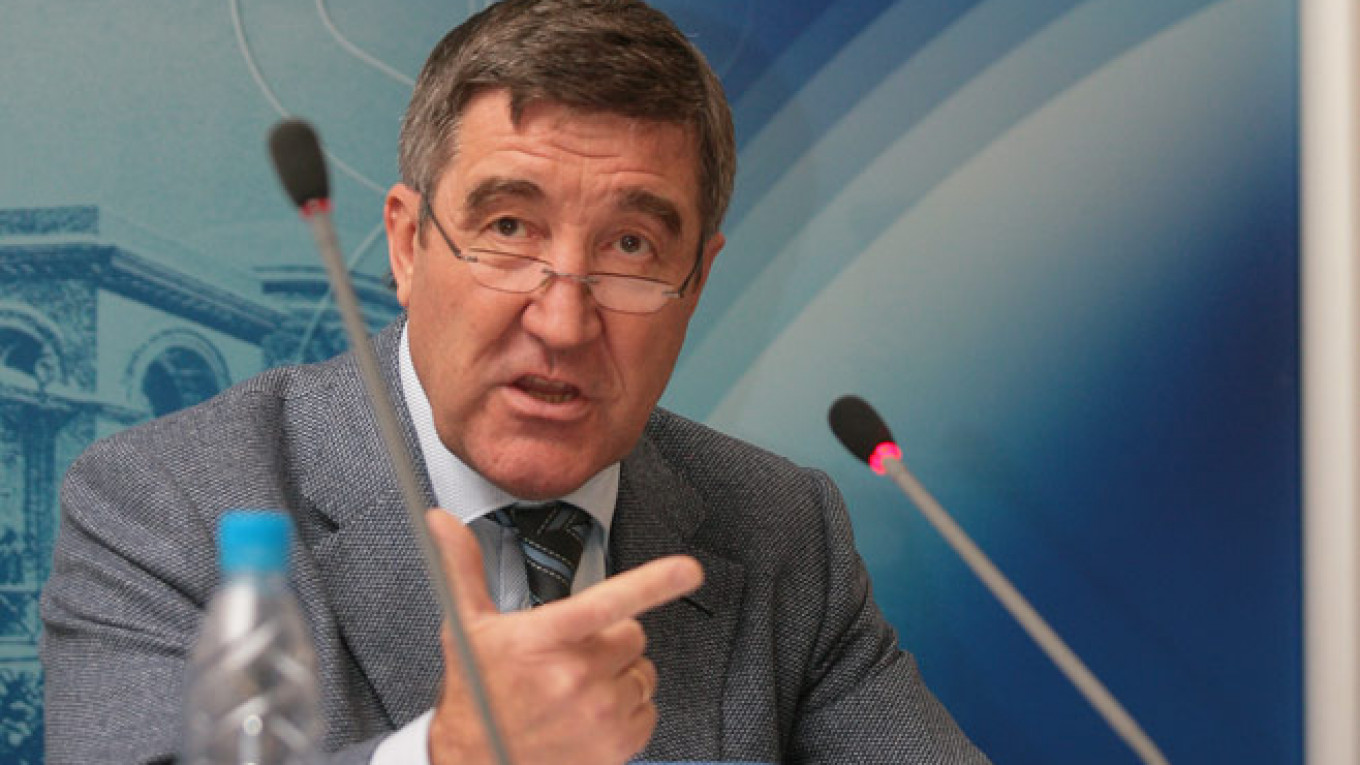Russian energy firm Soyuzneftegaz has decided against plans to explore for oil and gas off Syria's coast because of the conflict there, the company's chairman said on Tuesday.
Yury Shafranik, a former Russian energy minister, also said the private company had frozen its two onshore oil and gas projects in the country.
"The board … has decided not to proceed and abstained from active participation in the offshore project in Syria," he said at the Reuters Russia Investment Summit.
Soyuzneftegaz acquired the permit for joint exploration of Block 2 of Syria's territorial waters in December 2013. Shafranik has said the project would be passed on to a Russian energy company, which he did not name.
Shafranik also said that the company had to freeze its two onshore projects, Block 12 and Block 26, near Syria's borders with Turkey and Iraq.
"The risks are very high there, that's why the projects were stopped," he said at the summit in Moscow.
Civil war has raged for four years in Syria and at least 200,000 people have died and millions have been driven from their homes.
Soyuzneftegaz, founded by Shafranik in 2000, has worked all over the world, and has projects in the Middle East, Latin America, Africa and the former Soviet Union.
Shafranik, 63, was energy minister under President Boris Yeltsin from 1993 until 1996. He oversaw the privatization of the post-Soviet Russian oil industry and clinched energy deals in the Middle East, including in Iraq, where he successfully negotiated with Saddam Hussein.
He said he has had contacts with Saudi Arabia's oil minister, Ali al-Naimi, and that the OPEC kingpin will continue clinging to its market share by keeping oil production high despite low oil prices.
"Even if oil falls below $40, they would endure it," he said.
A Message from The Moscow Times:
Dear readers,
We are facing unprecedented challenges. Russia's Prosecutor General's Office has designated The Moscow Times as an "undesirable" organization, criminalizing our work and putting our staff at risk of prosecution. This follows our earlier unjust labeling as a "foreign agent."
These actions are direct attempts to silence independent journalism in Russia. The authorities claim our work "discredits the decisions of the Russian leadership." We see things differently: we strive to provide accurate, unbiased reporting on Russia.
We, the journalists of The Moscow Times, refuse to be silenced. But to continue our work, we need your help.
Your support, no matter how small, makes a world of difference. If you can, please support us monthly starting from just $2. It's quick to set up, and every contribution makes a significant impact.
By supporting The Moscow Times, you're defending open, independent journalism in the face of repression. Thank you for standing with us.
Remind me later.






